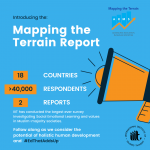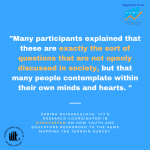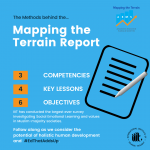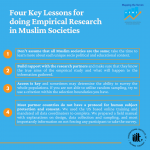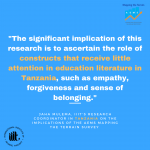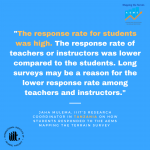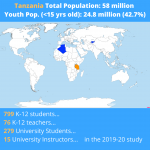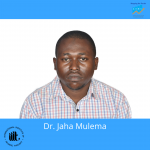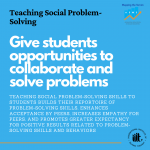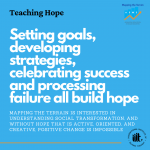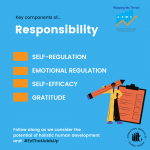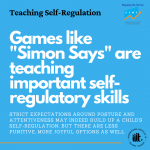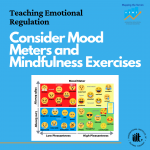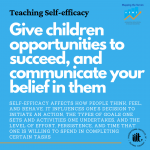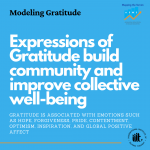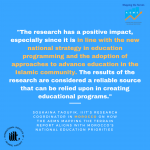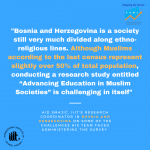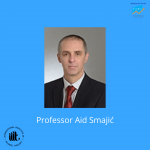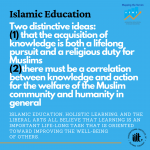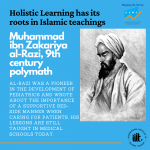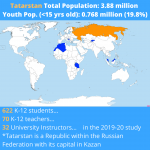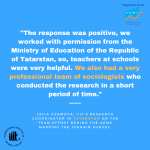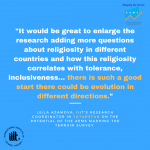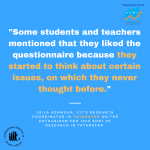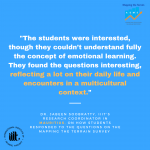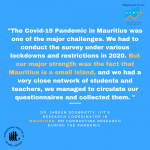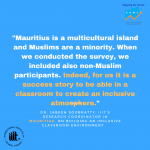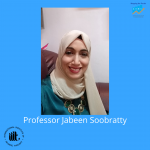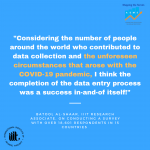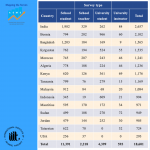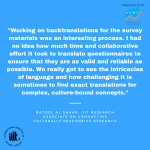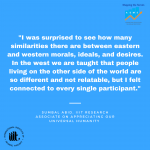Survey methods and research into the importance and components of social emotional education have unlocked new avenues for investigating, discussing, and planning for a more holistic approach to education. This so-called “third space” in education – alongside the more traditional spaces of education for employment and education for citizenship – has long been neglected and is of particular interest to us now two decades into the 21st century. Global trends in school accountability and governance alongside the increasing integration of artificial intelligence into daily life threaten to further marginalize the cognitive, social, and emotional skills and values that are essential to human development. As this relatively new field within human development takes shape, it is imperative that the research community adopts a global lens that includes a diversity of voices and experiences that reflect our modern world.
AEMS Brief #1: What is This and Why Should We Care?
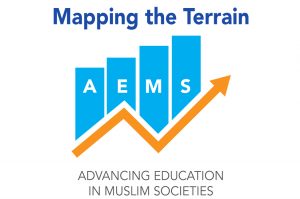
Introducing the Mapping the Terrain Report
AEMS Brief #2: Empirical Research in Muslim Societies: Methods and Scope
Zarina Duishegulova: IIIT Research Coordinator, Kyrgyzstan, explains how youth and educators responded to the AEMS survey
The Mapping the Terrain study took place in two phases, in 2018-19 and 2019-20, and surveyed 40,227 people in 16 countries on a host of social emotional skills and values. In many of our partner countries Mapping the Terrain was the largest, most comprehensive, and in some cases first scientific inquiry into Social Emotional Education (SEE) ever conducted. As a research team coordinating this project in so many different contexts, we gave special attention to designing a sensitive research framework that could be adapted a bit in each country. Researchers who are considering their own work in these systems may benefit from some of our lessons learned:
The Methods behind the Mapping the Terrain Report
AEMS Brief #3: Ethical Values in Human Development
Tanzania – Dr. Jaha Mulema
Adolescence is a critical stage in human development. It is a time when one’s identity and relation to society begin to take shape. There is, of course, differentiation in this development, but broad patterns have been observed, generalized, and formed into theoretical approaches. Developmental social science has been incorporated into the pedagogical practice and policy of educational systems across the globe to varying degrees. Furthering the integration of developmental research into educational practice is a goal of the AEMS research team. There has also been significant research demonstrating the critical role that cultural and political contexts play in shaping human development. Mapping the Terrain aims to explore and illuminate these contexts and to bring lessons from them to academic and policy arenas.
Three umbrella categories for social transformation
AEMS Brief #4: Cultivating Open-Mindedness in Education
Open-Mindedness
Open-Mindedness is one of the three areas we identified as necessary for social transformation and that we utilized in the Mapping the Terrain study of Muslim societies. The rationale for focusing on Open-Mindedness, alongside Responsibility and Collaborative Collective, is because they were identified in previous literature as catalysts for change (for more on this, see our third brief). This week, we are exploring the ways in which educators can cultivate open-mindedness in their students as well as some of the expected benefits to society that will come from a a more open-minded generation of young people developing through adolescence and into adulthood. We see open mindedness to be a critical skill and mindset for all groups, communities, and walks of life.
Malaysia – Prof. Rosnani Hashim
AEMS Brief #5: Cultivating Responsibility in Education
Responsibility is the second of three areas we identified as necessary for social transformation and that we utilized in the Mapping the Terrain study of Muslim societies. The rationale for focusing on Open-Mindedness, alongside Responsibility and Collaborative Collective, is because they were identified in previous literature as catalysts for change (for more on this, see our third brief). This week, we are exploring the ways in which educators can cultivate personal and social responsibility in their students as well as some of the expected benefits to society that will come from a more responsibility focused curriculum and instruction supporting young people their development into adulthood. We see social responsibility as the guiding principle of social collaboration and cohesion.
AEMS Brief #6: Building and Investing in a Collaborative Collective
The third umbrella category explored by the Mapping the Terrain study is the Collaborative Collective. This is a unique construct selected specifically for this study, aiming to capture the collective nature of Muslim-majority societies while accounting for the collaborative aspects required for a collective to work. Just like the two previously discussed umbrella constructs, Open-Mindedness and Responsibility (for more on them, see our previous briefs), the Collaborative Collective is not only necessary for social transformation but also a key feature of an effective classroom community. This week we will explore the ways in which educators in both collectivist and individualistic societal contexts can promote collaborative collective learning environments that highlight the interdependence of humanity.
Morocco – Sokaina Taoufik
AEMS Brief #7: Holistic learning, the Liberal Arts, and Islamic Education
Bosnia and Herzegovina – Dr. Aid Smajic
In our first six briefs we focused on the objectives and research constructs of the Advancing Education in Muslim Societies (AEMS) initiative and its’ Mapping the Terrain study, with specific attention to the implications for K-12 education and child development. In this brief, we extend our attention to post-secondary education, exploring the connection between Islamic education, the liberal arts, and the holistic education paradigm that motivates empirical research such as Mapping the Terrain. Holistic education and the elevation of social emotional skills goes hand-in-hand with the goals of the liberal arts because it aims to cultivate students that are problem solvers, critical thinkers, capable collaborators, and team players.
AEMS Brief #8: Holistic Learning in Higher Ed during COVID-19
Over the course of the last five months writing these briefs, we have made the case for an increased emphasis on holistic learning in education across the world. This was a core motivation of the AEMS Mapping the Terrain research when it began back in July 2018 but over the last two years the importance of values and student social-emotional well-being have been brought to the forefront of education policymakers across the globe because of the crisis created by the COVID-19 pandemic. An OECD report from November 2020 emphasized that “The COVID-19 crisis has highlighted that schools are not only crucial as education provider[s], but also as a place to respond to socio-emotional needs and support the well-being of vulnerable students. Schools can ideally be a safe space for vulnerable students, providing psychological support, responding to their socialization needs and creating a sense of community.”
Tatarstan – Dr. Leila Almazova
AEMS Brief #9: Facilitating Personal Transformation for the Next Generation of Leaders; Lessons from Empirical Research
In order to investigate these varied contexts of human development and educational transformation, we selected values and competencies grounded in theories of social change and tipping point literature. These values were organized based on a review of previous literature and the hypothesis of the research team. A review of the the categories highlighted in the report and some of their implications for education researchers, policymakers, and practitioners can be found in our previous briefs. A more detailed review of the measures, their scales, and the methodology of the surveys can be found in the report itself. In order to conduct research at this scale, we relied heavily on our local research coordinators on the ground in each of the 16 countries.
Mauritius – Professor Jabeen Soobratty
AEMS Brief #10: Towards a More Culturally Responsive Research Program
The Mapping the Terrain study took place in two phases, in 2018-19 and 2019-20, and surveyed 40,227 people in 16 countries on a host of social emotional skills and values. In many of our partner countries Mapping the Terrain was the largest, most comprehensive, and in some cases first scientific inquiry into non academic skills ever conducted. As a research team coordinating this project in so many different contexts, we gave special attention to designing an adaptable research framework that could be negotiated with the educational administration in each country. With plans to continue with the empirical research, AEMS is especially concerned with conducting quality research, and in this case, quality research also means culturally responsive research. Broadly, we aim to add a voice to the discourse of human development and holistic education beyond what is narrowly described by academic achievement data and in Western academic discourse. This is not just important for understanding and improving the educational experiences of students in diverse cultural contexts, but we believe that adopting such a culturally responsive approach to research can unlock new possibilities across the social sciences.

